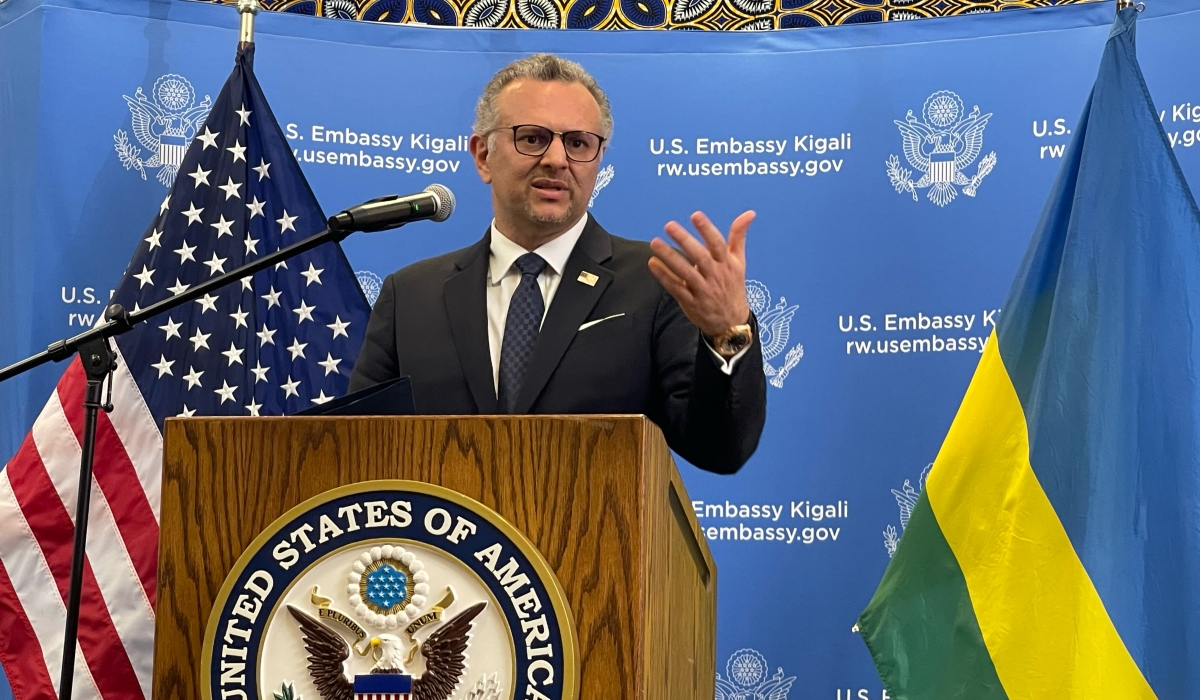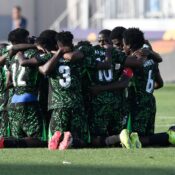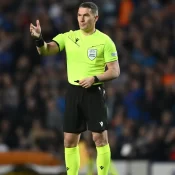
FDLR is “a major element of any DR Congo peace accord,” according to a Trump adviser
The FDLR, which is a member of the Congolese coalition against the AFC/M23 rebels in eastern DR Congo, is accused of promoting a genocidal doctrine against the Tutsi minority in the country.
US President Donald Trump’s Senior Advisor for Africa, Massad Boulos, has stated that resolving the threat presented by the murderous FDLR group must be “an integral element” of peace efforts in eastern DR Congo.
The FDLR is a member of the government of the Democratic Republic of the Congo’s coalition in the continuing war against the AFC/M23 rebel movement and has been designated a terrorist organization by the United States and the United Nations.
According to Boulos, who traveled to Rwanda as part of a regional tour that also included stops in the Democratic Republic of the Congo, Kenya, and Uganda this month, he spoke with President Paul Kagame on April 8 about the FDLR, an organization established by those responsible for the 1994 Genocide against the Tutsi.
At a virtual briefing on the conclusion of his African tour, which concluded on April 14, Boulos stated on Thursday, “We definitely discussed the FDLR and the risk in question.”
And this is a key component of any peace agreement. This is the main component from Rwanda’s perspective and a crucial component of any future peace accord, initiative, or agreement, if you look at all the peace initiatives.
Concerns regarding the Congolese government’s cooperation with the FDLR and the group’s incorporation into the anti-Rwanda military alliance have been voiced by Rwanda for years.
Rwanda is accused by the Congolese government of aiding the AFC/M23 insurgents, who now hold control of two important eastern cities.
Kigali denies these claims, claiming it has merely taken legal defensive actions to stop any invasions by the FDLR or FARDC (DR Congo army) coalitions, who are supported by Kinshasa, and to stop President Felix Tshisekedi’s repeated threats to attack Rwanda from coming to pass.
The FDLR is a member of the Congolese coalition fighting the AFC/M23 rebels in eastern DR Congo. It is accused of targeting and spreading genocide ideology against the Congolese Tutsi communities. In recent months, the AFC/M23 has captured some of its commanders in battle and turned them over to Rwanda.
The rebels claim they are fighting for the rights and safety of Rwandophone and other downtrodden Congolese communities, particularly in the country’s east, and they also accuse Kinshasa of ethnic cleansing.
Since 1994, when Mobutu Sese Seko’s Zairean government provided asylum and support to extremist groups and former Rwandan army personnel who carried out the Genocide against the Tutsi in Rwanda, the Democratic Republic of the Congo has been plagued by recurrent conflicts.
Boulos, who also met with Presidents William Ruto of Kenya, Yoweri Museveni of Uganda, and Felix Tshisekedi of the Democratic Republic of the Congo, stated that the Trump administration backed regional efforts to find a peaceful solution to the crisis in eastern DR Congo.
He claimed that during his meetings with Kagame and Tshisekedi, the threat posed by the FDLR was brought up.
“This is one of the key components of the conversations we’ve been having with both parties,” he stated.
“We are not inventing the wheel here; there are solutions. We will keep collaborating with them to achieve the terms and solutions that have already been prepared and approved by both sides.
“We have a responsibility to protect the territorial integrity and sovereignty of all participating nations, not just one or two. In answer to a query from The New Times, he stated, “Everyone has to be at ease and feel comfortable with the terms and safe from any such threats, whether they are actual or perceived or any future threats.”
The Trump advisor applauded the recent move of sending representatives to Doha for historic direct discussions from both Kinshasa and AFC/M23. Despite the ongoing talks, the rebels have accused Kinshasa of approving strikes on their positions, and both parties have mainly remained mute about how the first round of dialogue went.
In the past, President Tshisekedi had refused to hold peace negotiations with the group.
According to the top US ambassador to Africa, Kinshasa had promised measures that would address the concerns of US investors, and he and his group also talked about a potential minerals agreement with the Congolese government. He gave no other information. According to Boulos, the goal of his trip was to safeguard US interests and advance regional economic cooperation.
All Categories
Recent Posts
Tags
+13162306000
zoneyetu@yahoo.com



